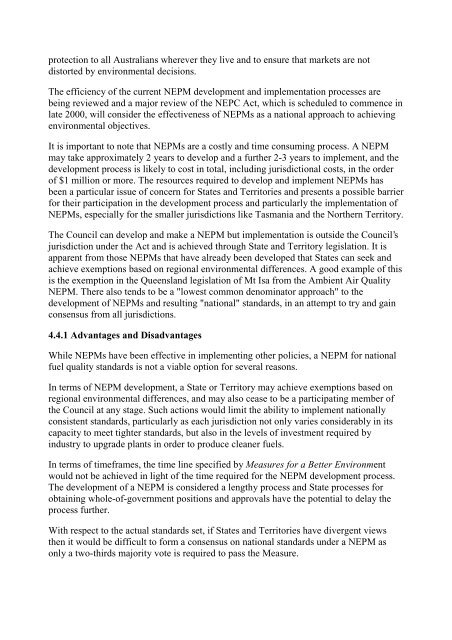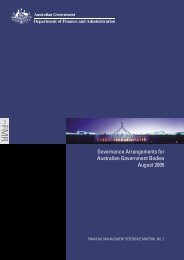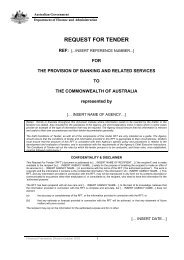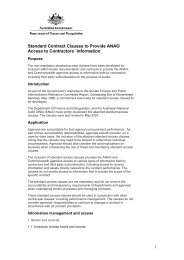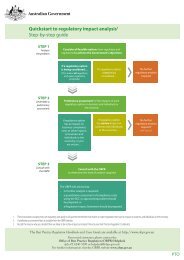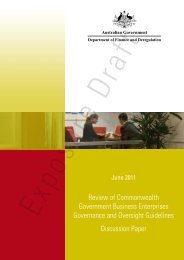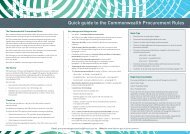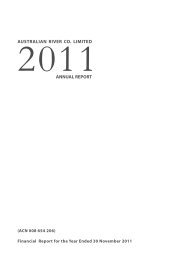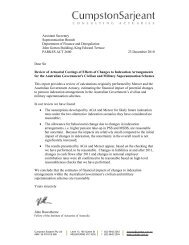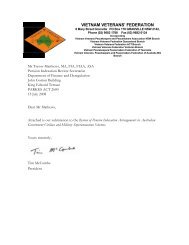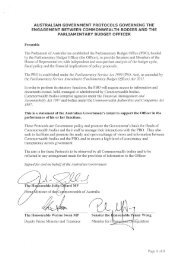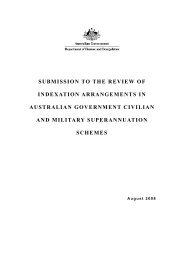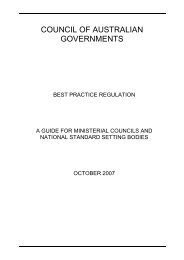National Fuel Quality Standards Regulation Impact Statement 1 ...
National Fuel Quality Standards Regulation Impact Statement 1 ...
National Fuel Quality Standards Regulation Impact Statement 1 ...
You also want an ePaper? Increase the reach of your titles
YUMPU automatically turns print PDFs into web optimized ePapers that Google loves.
protection to all Australians wherever they live and to ensure that markets are not<br />
distorted by environmental decisions.<br />
The efficiency of the current NEPM development and implementation processes are<br />
being reviewed and a major review of the NEPC Act, which is scheduled to commence in<br />
late 2000, will consider the effectiveness of NEPMs as a national approach to achieving<br />
environmental objectives.<br />
It is important to note that NEPMs are a costly and time consuming process. A NEPM<br />
may take approximately 2 years to develop and a further 2-3 years to implement, and the<br />
development process is likely to cost in total, including jurisdictional costs, in the order<br />
of $1 million or more. The resources required to develop and implement NEPMs has<br />
been a particular issue of concern for States and Territories and presents a possible barrier<br />
for their participation in the development process and particularly the implementation of<br />
NEPMs, especially for the smaller jurisdictions like Tasmania and the Northern Territory.<br />
The Council can develop and make a NEPM but implementation is outside the Council’s<br />
jurisdiction under the Act and is achieved through State and Territory legislation. It is<br />
apparent from those NEPMs that have already been developed that States can seek and<br />
achieve exemptions based on regional environmental differences. A good example of this<br />
is the exemption in the Queensland legislation of Mt Isa from the Ambient Air <strong>Quality</strong><br />
NEPM. There also tends to be a "lowest common denominator approach" to the<br />
development of NEPMs and resulting "national" standards, in an attempt to try and gain<br />
consensus from all jurisdictions.<br />
4.4.1 Advantages and Disadvantages<br />
While NEPMs have been effective in implementing other policies, a NEPM for national<br />
fuel quality standards is not a viable option for several reasons.<br />
In terms of NEPM development, a State or Territory may achieve exemptions based on<br />
regional environmental differences, and may also cease to be a participating member of<br />
the Council at any stage. Such actions would limit the ability to implement nationally<br />
consistent standards, particularly as each jurisdiction not only varies considerably in its<br />
capacity to meet tighter standards, but also in the levels of investment required by<br />
industry to upgrade plants in order to produce cleaner fuels.<br />
In terms of timeframes, the time line specified by Measures for a Better Environment<br />
would not be achieved in light of the time required for the NEPM development process.<br />
The development of a NEPM is considered a lengthy process and State processes for<br />
obtaining whole-of-government positions and approvals have the potential to delay the<br />
process further.<br />
With respect to the actual standards set, if States and Territories have divergent views<br />
then it would be difficult to form a consensus on national standards under a NEPM as<br />
only a two-thirds majority vote is required to pass the Measure.


